
Anne-Sophie Fernandez
Professeur des Universités, Université de Montpellier
Anne-Sophie Fernandez est Maître de conférences HDR à l’université de Montpellier et membre du laboratoire Montpellier Recherche en Management (MRM). Ses recherches portent sur les relations d’alliances et de coopétition. Elle s’intéresse essentiellement aux industries de haute-technologie et au transport aérien et ferroviaire. Elle a participé à la coordination de numéros spéciaux de revues internationales et a publié plusieurs articles de recherche dans des revues internationales comme Long Range Planning, British Journal of Management ou Industrial Marketing Management. Elle est également la coauteure de l’ouvrage The Routledge Companion to Coopetition Strategies.
Less ![]()
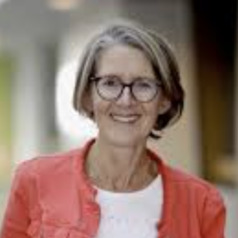
Anne-Sophie Lamblin-Gourdin
Professeur de droit public, Membre du LabLEX (Laboratoire de recherche en droit, UR 7480), Université Bretagne Sud (UBS)
Enseignant-chercheur en Droit public, Université Bretagne Sud
Less ![]()
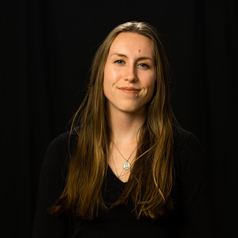
Anneliese M. Schenk-Day
PhD student of the sociology of mass violence, The Ohio State University
Anneliese M. Schenk-Day is a PhD student broadly studying the sociology of mass violence. Schenk-Day has worked on projects pertaining to hate crimes against the LGBTQ+ community and racial minorities in the United States, and internationally studied the 1994 Rwandan Genocide against the Tutsi, Bosnian genocide at Srebrenica.
Less ![]()
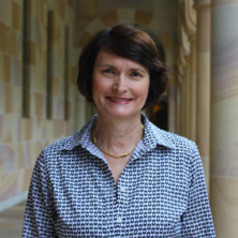
Annemaree Carroll
Professor of Educational Psychology, The University of Queensland
Annemaree Carroll is Associate Dean Research in the Faculty of Humanities and Social Sciences and Professor of Educational Psychology within the School of Education at The University of Queensland. Her research activities focus on the social emotional learning of children and adolescents, and the importance of social connectedness, (dis)engagement, and social inclusion to their behavioural and educational outcomes. Student, teacher, and community voices and agency are key considerations in her research methodologies. She is known nationally and internationally for the development of innovative emotion regulation interventions for children and youth to bring about positive change in their lives. She has conceptualised and coordinated the development of the Mindfields Suite of Programs (www.mindfields.com.au), which encompasses a strengths-based approach to student well-being that targets school-wide practices to help young people take control of their lives. She has also led a team of researchers to develop the KooLKIDS Resources (www.kool-kids.com.au), an emotion resilience program to empower children to live well with themselves and others by learning social, emotional and cognitive skills that promote self-regulation and well-being. Her research has now extended to teacher emotion regulation strategies, demonstrating that improved teacher well-being has downstream benefits to students' well-being and the teacher-student relationship.
Professor Carroll has extensive experience managing large-scale, school-based projects across classroom settings and clinic-based research, in which she has excellent skills in test administration with children and adolescents. She has also been concerned with children with neurodevelopmental disorders (e.g., ADHD, speech-language disorders, Tourette Syndrome) to examine information-processing tasks that may demand intact executive functioning and that require dual-task performance and control of impulsive reactions.
From 2014 to 2020, Professor Carroll was Co-ordinator of Translational Outcomes within the Australian Research Council Science of Learning Research Centre. Building on this work, she is the co-founder and Head of the UQ Learning Lab, where multi-disciplinary researchers work in partnership with educational and industry professionals to identify and address important learning and training priorities. The Learning Lab’s primary objective is to transform education and learning across schooling and beyond, through partnered innovations and research translation initiatives.
Professor Carroll is a registered teacher and psychologist. She has experience teaching in primary and special education in Queensland and has engaged in research and higher education teaching at The University of Queensland and The University of Western Australia, where she was granted a Master of Education (1991) and PhD in Educational Psychology (1995). She was elected a Fellow of the Academy of Social Sciences in Australia in 2018.
Less ![]()


Annemarie Jutel
Professor of Health, Te Herenga Waka — Victoria University of Wellington
Annemarie trained as a Nurse at l'Ecole d infirmieres in Nantes, France and has practiced in France, the US and now New Zealand. She left clinical work in 2000 to focus on sociological aspects of health and illness. Her ground-breaking work in the sociology of diagnosis focuses on how medical classification interacts with social and cultural interests. Her current interests are in the diagnostic moment and its narratives.
Less ![]()
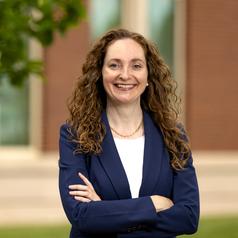
Annetta Grant
Assistant Professor, Markets, Innovation, and Design, Bucknell University
My research examines the sociocultural dynamics that shape sustainable consumption practices. I'm curious about what drives consumers’ quest to buy the latest and newest, and how consumers adopt more sustainable-oriented practices.
Less ![]()
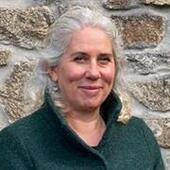
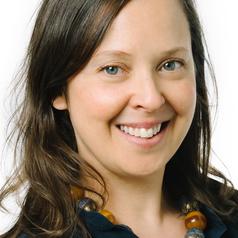
Annette Brömdal
Associate Professor (Sport, Health and Physical Education), University of Southern Queensland
Dr Annette Brömdal PhD (Netta/they/she) is an Associate Professor at the University of Southern Queensland, Australia. Annette’s research interests fall within the areas of bodies, gender and sexuality in the corrective service system, health/clinical/aged care systems, elite sports, and contemporary sexuality education to promote the health and rights of LGBTQIA+ Sistergirl and Brotherboy folk. Annette is currently leading a number of funded/non-funded and co-designed research projects in partnership with LGBTQIA+ Sistergirl and Brotherboy communities and government stakeholders within and outside Australia, and also co-leads an international research team investigating the lived experiences of formerly incarcerated trans persons in Australia and the United States.
Less ![]()

Annette Desmarais
Canada Research Chair in Human Rights, Social Justice and Food Sovereignty, University of Manitoba
Less ![]()

Annette Hübschle
Chief research officer: Global Risk Governance Programme, Public Law Department, Faculty of Law, University of Cape Town
Annette Hübschle is a chief research officer in the Global Risk Governance Programme in the Public Law Department at the University of Cape Town, where she is also responsible for the Environmental and Planetary Futures Research Group. Annette holds a PhD in Social Sciences and Economics from the International Max Planck Research School on the Social and Political Constitution of the Economy and the University of Cologne and a Masters of Philosophy in Criminology from the University of Cape Town. Her current research focuses on the governance of safety and security with a specific focus on the structure and functioning of illegal economies, environmental restorative justice, natural resource extraction (especially oil and gas), as well as the interface between licit and illicit economies and criminal networks.
Less ![]()
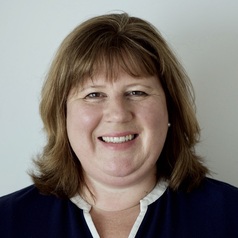
Annette Turney
Lecturer of Language and Literacy Education, Australian Catholic University
Less ![]()

Annette Zou
Senior Researcher, Centre for Climate and Energy Policy, Australian National University
Less ![]()


Annie Delgado
PhD Student in History, University of Nevada, Las Vegas
Analiesa (Annie) Delgado is a PhD candidate who researches gender and empire within the Federal Indian Boarding Schools. She is the Henry and Jessica Schuck Graduate Assistant in Public History at UNLV.
Less ![]()
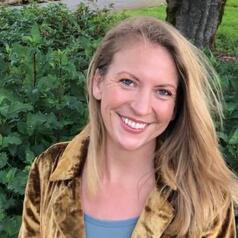
Annie Margaret
Teaching Assistant Professor of Creative Technology & Design, ATLAS Institute, University of Colorado Boulder
Annie is an educator, researcher, and human enthusiast motivated by questions at the intersections of mental health, technology, addictive design, tribalism, the attention economy and mindfulness. Her teaching and research address psychotechnologies and cognitive states that counteract the negative impact of social media on our mental health and wellbeing. She cultivates contemplative practices and classroom experiences to foster skills critical for human thriving in the rapidly growing attention economy – empathy, sovereignty, metacognition, embodied wisdom, self-inquiry and interpersonal communication.
She received her PhD in cell and molecular biology from Northwestern University in 2014, and balances this rigorous training in the scientific method with the empiricism of participatory knowledge. She enjoys working with companies to develop strong cultures of empathy through personalized feedback and facilitates workshops empowering creative technologists to find their voice and personal story.
Less ![]()

Annie Pezalla
Visiting Assistant Professor of Psychology, Macalester College
Dr. Pezalla's research expertise is in social identities, positive youth development, and family relationships.
Less ![]()
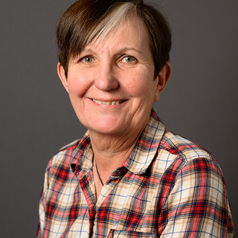
Annie Smith
Adjunct Professor, School of Nursing, University of British Columbia
Annie Smith, Executive Director, McCreary Centre Society & Adjunct Professor School of Nursing, University of British Columbia
Annie has been the Executive Director of the McCreary Centre Society since 2006. Based in Vancouver, Canada the Society is best known for its’ BC Adolescent Health Survey and is a non-profit organization committed to improving the health of BC youth through community based research, evaluation and youth participation projects.
Annie holds a masters from Harvard and a PhD from Sheffield Hallam University. She has co-authored peer-reviewed and community reports on a variety of topics related to adolescent health, including substance use, mental health, sexual health, physical activity, health inequalities and youth engagement.
Less ![]()

Annie Te One
Lecturer in Māori Studies, Te Herenga Waka — Victoria University of Wellington
Annie Te One (Te Ātiawa, Ngāti Mutunga) is a lecturer in Te Kawa a Māui. Annie’s PhD is from the Australian National University and focussed on iwi and local government relationships in Wellington and the Hutt Valley. She is currently undertaking research relating to the Mana Wāhine Inquiry (WAI2700), rangatahi-led research focussing on the future of Māori housing, as well as being a Fulbright Scholar to teach and research at the University of Hawaii with a particular focus on the connections between Māori and Kanaka Māoli political philosophies. Her research interests are also focussed on how Crown institutions engage with tikanga.
Less ![]()

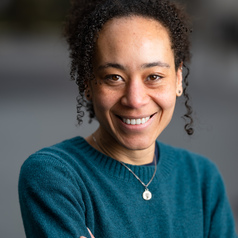
Annie Louise Irvine
Research Associate, King's College London
Annie Irvine is a qualitative researcher with core interests mental health, employment and UK welfare policy. She holds a PhD by Publication, drawing on her applied empirical research on the complexities of managing common mental health problems in the workplace. Currently at the ESRC Centre for Society and Mental Health, she is developing a programme of qualitative research on transitions between welfare and employment for people with experience of mental health problems, in the context of a precarious labour market. Annie prioritises research that has policy and practice relevance, whilst also exploring social conceptualisations of mental health.
Less ![]()
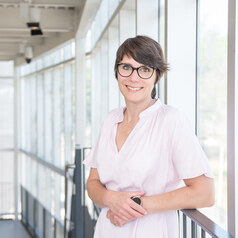
Annie Pullen Sansfaçon
Professor of Social Work, Université de Montréal
Annie Pullen Sansfaçon est professeure titulaire à l'École de service social de l'Université de Montréal. Elle occupe aussi le poste de vice-rectrice associée aux relations avec les Premiers Peuples et Conseillère spéciale au Vice-recteur à la planification et à la communication stratégiques, et a co-fondé en 2020 le Centre de recherche interdisciplinaire sur la justice intersectionnelle, la décolonisation et l’équité (CRI-JaDE).
Elle est titulaire de la Chaire de recherche du Canada sur la recherche partenariale et l'autonomisation des jeunes vulnérables (CRC ReParE, chaire de niveau 1). La CRC ReParE a pour objectif de produire des connaissances empiriques et intersectionnelles sur les logiques d’exclusion et d’inclusion sociale des jeunes vulnérabilisé·e·s. La Chaire s’intéresse particulièrement à la recherche et aux méthodologies à déployer auprès des jeunes de la diversité des genres de moins de 25 ans en cohérence avec les travaux de la CRC sur les enfants transgenres et leurs familles (niveau 2) dont Prof. Pullen Sansfaçon a été titulaire entre 2018 et 2023.
Ses intérêts de recherche touchent principalement les questions suivantes:
1. Les jeunes de la diversité des genres
2. Les dimensions éthiques en recherche partenariale
3. Les méthodologies pour faciliter la recherche visant l’empowerment et la confrontation des inégalités sociales.
Less ![]()

Anniek Kortleve
PhD Candidate, Department of Industrial Ecology, Leiden University
In 2019, Anniek received her BSc diploma in Future Planet Studies with a major in Earth Sciences at the University of Amsterdam. She then continued her studies with a joint degree study of Delft University of Technology and Leiden University. She pursued a joint MSc degree in Industrial Ecology in 2021. For her MSc thesis, she assessed the carbon storage potential of urban soils in a medium-sized city in the Netherlands.
Anniek started as a PhD researcher at the Industrial Ecology department of CML in September 2021. Anniek participates in the ‘Decarbonizing Denmark 70by30: Getting the data right’ project. Her PhD project focuses on obtaining higher geographical resolution by subdividing highly aggregated regions.
Less ![]()

Annika Karlsson
Researcher, Department of Laboratory Medicine, Karolinska Institutet
I, Annika Karlsson am actively serving as the deputy director, senior researcher (group leader) and teacher at the Division of Clinical Microbiology, Department of Laboratory Medicine, and Facility Manager at the ANA Futura BSL3 Core Facility, Department of Medicine, Huddinge, Karolinska Institutet. I was appointed Associate Professor in clinical virology at Karolinska Institutet in 2009. The scope of my research activities is to deepen our understanding of the interactions between a virus and the virus-specific cellular immune response, specifically CD4 and CD8 T cells, in blood and tissue.
My research goal is to define the virus-specific cellular immune system in pregnant women, children, adolescents, adults, elderly, and in human cancer with implications for immunopathogenesis, development and regulation of the immune system, and health. The biomarkers identified through our study can subsequently be implemented in the examination of the consequences of acute and chronic viral infections, long-term antiretroviral treatment, or vaccination.
Less ![]()
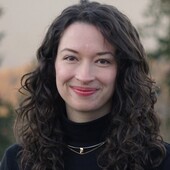

Anoop Bhogal-Nair
Senior Lecturer in Marketing and Consumption, De Montfort University
I am an inter-disciplinary marketing and consumer research academic engaged in research that investigates how individuals negotiate and consume both their sense of physical being and their self-identity within the spaces they occupy. Specifically, my research activity has centred upon minoritized consumers and vulnerable groups (disability and marketplace access, gender-based violence, religious minorities), focusing on the challenges, threats, and opportunities individuals face in their daily lives. My research work sits at the intersection of Identity and voice, positive social impact, and the broad wellbeing agenda. Through adopting the sensibilities of a transformative consumer research approach, I am passionate about engaging in research that can: benefit society; allows for an engagement with other disciplines; and adopts non-extractive and collaborative approaches with stakeholder groups through creative methodologies (digital storytelling, poetry, applied theatre, co-creative strategies and participatory research).
Currently, I am engaged in a number of externally-funded research projects funded by The British Academy, The Arts and Humanities Research Council, and Innovate UK. Working with colleagues across a range of disciplines (Health and Life Sciences, Education, Film Studies, Theatre) these projects focus on trans-disciplinary research in South Asia and focus on skills provision for young rural women in India; gender-based violence among migrant women in India and intervention strategies through the use of applied-theatre; and the Indian film industry, heritage and migration. Central to these projects is the use of insightful, methodological approaches from the digital humanities (digital storytelling and photovoice).
In terms of my approach to teaching, I believe in creating a learning environment that challenges and questions the status quo through harnessing a culture of critical enquiry. Encouraging students to consider a multiplicity of perspectives in marketing and consumer behaviour has been at the heart of my approach to teaching both undergraduate and postgraduate students. Subject areas I have taught are Consumer Behaviour, Marketing Communications, Creative Communications, Global Branding, International Marketing and Consumer Culture Theory.
Less ![]()
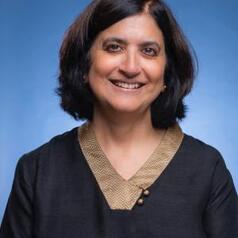
Anshu Malhotra
Professor of Global Studies, University of California, Santa Barbara
Anshu Malhotra is Professor in the Department of Global Studies and Kunadan Kaur Kapany Professor and Chair of Sikh Studies at the University of California at Santa Barbara. She has taught at the Department of History, Faculty of Social Sciences, University of Delhi. She holds a Ph.D from SOAS, University of London. She works on gender histories, cultural studies, autobiography studies and histories of South Asia, in particular that of Punjab and the Sikhs. She is the author of Piro and the Gulabdasis: Gender, Sect and Society in Punjab (OUP, 2017) and Gender, Caste and Religious Identities: Restructuring Class in Colonial Punjab (OUP, 2002). She has co-edited Punjab Reconsidered: History, Culture and Practice (OUP, 2012); Speaking of the Self: Gender, Performance and Autobiography in South Asia (Duke University Press, 2015; South Asian Print Zubaan, 2017); and Text and Tradition in Early Modern North India (OUP, 2018). She has also published in journals like Modern Asian Studies, Indian Social and Economic History Review, Journal of Women’s History, Journal of Punjab Studies among others. She is currently working on a co-edited volume on the Sikh reformer and stalwart Bhai Vir Singh and an edited volume on Punjab’s Global and Local Histories.
Less ![]()

Anshu Suri
Assistant Professor of Marketing, University College Dublin
Dr. Anshu Suri is the UCD Garfield Weston Assistant Professor of Marketing at the Michael Smurfit Graduate Business School, University College Dublin. She earned her PhD in Marketing from HEC Montréal (University of Montreal) and holds an MBA from the State University of New York (SUNY) at Buffalo.
Dr. Suri's research is centered on understanding consumer responses in the face of brand and service failures, shedding light on critical aspects of consumer behavior. Her scholarly pursuits extend to the realms of consumer-technology interaction and the sharing economy, contributing to a deeper comprehension of contemporary market dynamics.
Her research has been featured in prominent business journals, including the Journal of the Academy of Marketing Science, the International Journal of Research in Marketing, Psychology & Marketing, and the Journal of Business Research, among others. Dr. Suri's insights have also been shared on a global stage, with presentations at international conferences such as the American Marketing Association (AMA) and the Association for Consumer Research (ACR).
Prior to her academic career, Dr. Suri gained valuable industry experience as a marketer, both in the United States and India. This practical background enriches her academic work, providing a holistic perspective on marketing and consumer behavior.
Less ![]()
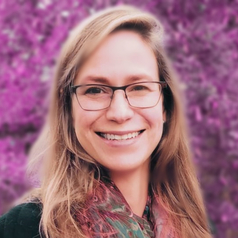
Ansie Smit
Senior Lecturer, University of Pretoria
Research Interests
Numerical and computational techniques
Applied statistical methods
Statistical seismology
Natural hazard and risk estimation
Education
2019: PhD Mathematical Statistics, University of Pretoria
2010: MSc Mathematical Statistics, University of Pretoria
2003: Bsc(Hons) Mathematical Statistics, University of Pretoria
2002: BSc Financial Mathematics, University of Pretoria
Employment
2020 – current : Senior lecturer, Department of Geology, University of Pretoria Natural Hazard Centre, Africa, University of Pretoria
2013 – 2019 : University of Pretoria Natural Hazard Centre, Africa, University of Pretoria
2008-2013 : Aon Benfield Natural Hazard Centre Africa, University of Pretoria
2006-Jan 2008: Munnik Basson Dagama Attorney, Business Analyst
2005-Aug 2006: AC Nielsen Marketing and Media Pty Ltd, Research Statistician
2004 : Junior Lecture, Department of Statistics, University of Pretoria
Less ![]()

Antaya March
Senior Research Associate - Global Plastics Policy Centre, University of Portsmouth
Senior Research Associate
Revolution Plastics and the Centre for Blue Governance.
I am the lead researcher of the Global Plastics Policy Centre. My expertise is in resource management, the circular economy and marine plastics. I have led the development of a globally recognized plastics policy assessment framework and the delivery of the global review of plastics policies published in 2022.
I carry out further work in the development of tools, recommendations and frameworks for blue governance, marine resource management, small-scale fisheries, developing the blue economy, plastics policy, conservation and the social impacts of conservation measures.
I’m working towards a PhD via publication.
I have 7 years of experience– first 2 years teaching conservation and MPAs in the field. Then in the academic and consulting world for the last 5. I have taught on a number of modules across various universities including:
Development economics (BSc, University of Portsmouth)
Coastal and Marine Resource Management (MSc, University of Portsmouth)
Blue Economy, Law and Fisheries Management (BSc, Open University of Mauritius)
Less ![]()


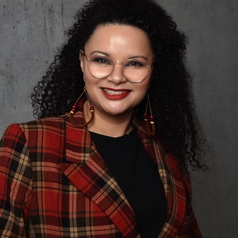
Anthea-lee September-Van Huffel
Lecturer, University of the Free State
My research is in the area of land reform, governance and constitutional property law constructs with particular emphasis on improving 'holistic' security of tenure in rural communities that reflect and support the lived realities of people which directly impacts on their social and economic rights. Consequently, I have worked with rural communities consulting on the law pertaining to customary communal land and natural resource matters. I have, therefore, worked with the Department of Agriculture, Rural Development and Land Reform both at provincial and national level to assist rural communities and their customary structures to resolve and navigate complex land rights issues that can arise due to different property rights understandings and legal frameworks. I obtained my LLB and LLM from the University of the Western Cape and LLD from the University of the Free State. I am a lecturer at the University of the Free State, Law Faculty, Private Law department. Prior to academia, I practised in the property law departments of Edward Nathan Sonnenbergs Inc and Webber Wentzel Attorneys in Sandton, Johannesburg.
Academic credentials and short-CV: https://www.ufs.ac.za/law/private-law-home/general/staff?pid=yAP26%2b9Gd0k%3d
Less ![]()
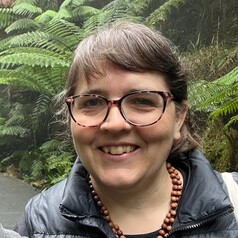

Anthi Koskina
Professor of Law, IdEF College- Sorbonne Paris North University (Greece); Research fellow, AthensPIL center - National & Kapodistrian University of Athens (Greece)., University of Athens
Professor of Law, Collège Idef-PARIS XIII, Athens, Greece (2015); Research fellow, Athens Public International Law Center (AthensPIL), National and Kapodistrian University of Athens, Greece (2015). She obtained her PhD Cum Laudae on “The right to conduct scientific research”, from the National and Kapodistrian University of Athens, Greece (2011), published in 2013 (Nomiki Bibliothiki Eds.). She received a fellowship for young researchers, co-funded by the Greek Ministry of Economy and the EU (NSRF 2014-2020), for the project “Artificial Intelligence and Space Law” (2019) and was elected to take part in the International Visiting Professor Program 2020, under the ‘University of Science and Technology of China Fellowship Initiative’ (Hefei, China). She is a collaborator at the National Observatory of Athens (Greece), for Space Law matters (2020). She is a member of the Hellenic Society of International Law and International Relations (HESILIR), the European Society of International Law (ESIL, -2023), the European Center for Space Law (ESA-ECSL) and a Lawyer at the Athens Bar (2002). She has published many articles on Science, Technology and law; Artificial Intelligence Law; Climate change; and Space Law in national and international journals and participated in several national and international conferences on these topics.
Less ![]()
- Market Data





















